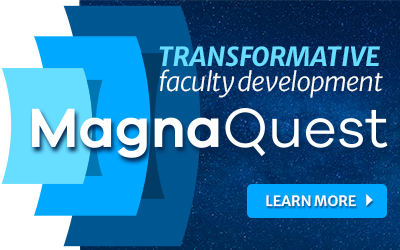Inspiring Change with Your Strategic Plan
Almost every institution of higher education has a strategic plan, but how many institutions actually make use of that plan? According to Wayne Smutz, dean of continuing education and extension for UCLA, not many. Yet an institution’s strategic plan can be a powerful tool for spurring it to action. At the...
Best Practices in Preparing Academic Leaders
It's increasingly common for colleges and universities to offer programs designed to help chairs, deans, and other academic leaders become more effective. Sometimes falling under a center for teaching and learning, at other times existing as an independent office for leadership and professional development, these programs reflect the recognition that...
What You Need to Know About FERPA
FERPA is probably the most widely misunderstood law relating to education. Online faculty members and administrators need to get the real story on FERPA so they understand what is and is not allowed.
Effective Referrals to Campus Counseling Services
If you encounter a distressed student and decide to refer the student to counseling or other psychological services, there are actions you can take to increase the chances the student will follow through. Here are three tips to help increase your chances of success.
How to Avoid Common Assessment-Reporting Pitfalls
Little things can make or break a large project, so it would be a shame if ill-prepared reports undid all the hard work you put into an assessment effort. John H. Schuh, author of Assessment Methods for Student Affairs, offers tips for getting your assessment results into the right hands...
How to Intervene with a Student in Distress
There’s no one correct way to deal with students in distress, however, and different faculty and staff members have different capacities for working with distressed students, so it’s important to know your abilities and limits when deciding whether or not to intervene
Improve Your Teaching with a Teaching Toolbox
Teaching online can become closer to the ideal of a one-to-one meeting of minds where the instructor connects with students on an individual basis by providing each with the specific instruction needed to elevate his or her understanding. Developing a teaching toolbox will facilitate this meeting of the minds.
Curt Bonk Talks about Open Education
Open education really breaks into two forms: open courses and open resources. Open courses are the MOOCs hosted on Coursera, EdX, and elsewhere. Open courses allow higher education to advance its fundamental mandate of serving the public good by making its faculty expertise freely available to the world. By contrast,...
Accountability in its Many Forms
Calls for accountability in higher education have been heard for a number of years, with some of the first salvos being concerned with student learning and continual faculty productivity, the latter of which led to many institutions approving new policies on post-tenure review. Today, questions continue, but they are now...
Universities Prepare for Crisis Communication
When your institution faces a crisis, be it a dorm fire or a cyberattack, it is important to be ready to handle not only the event but also the communications and public relations challenges that come after. According to a small recent survey by Dick Jones Communications, most colleges and...












